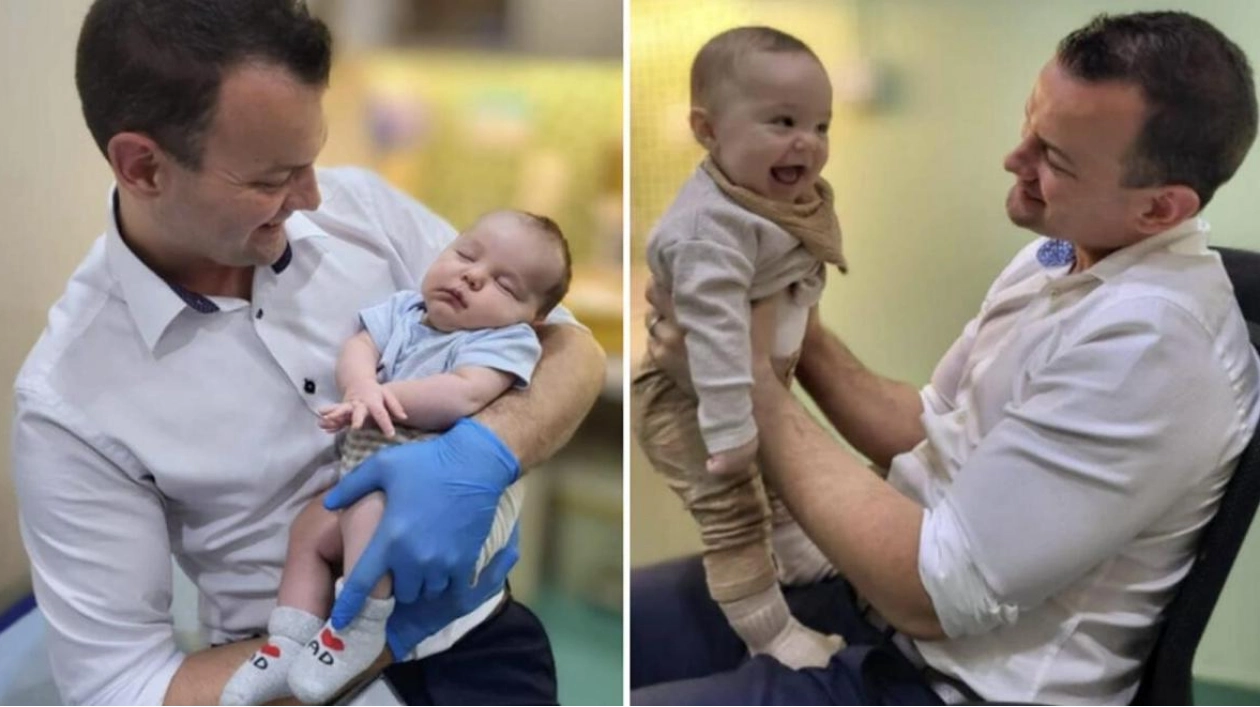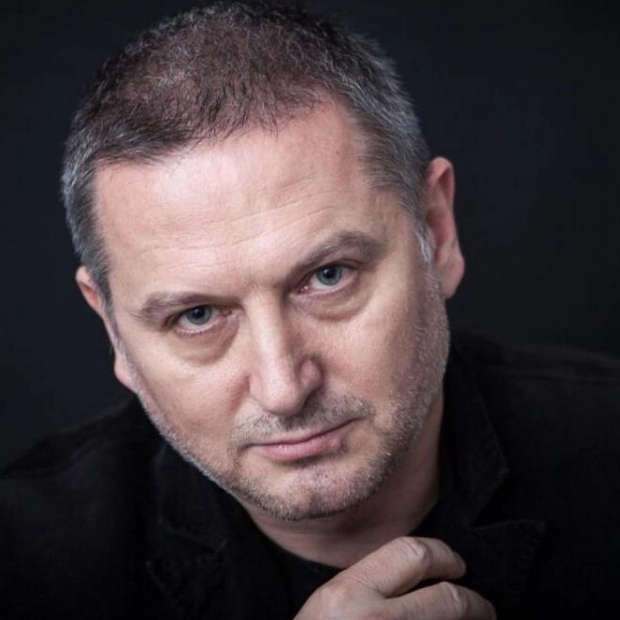Doctors in Abu Dhabi successfully conducted a complex surgery to save a newborn baby with a rare and life-threatening congenital condition known as tracheoesophageal fistula (TEF) with oesophageal atresia (EA). The joy of becoming first-time parents was short-lived for German couple Tim and Sarah, who work for a UAE-based airline. Despite regular scans showing no concerning signs during pregnancy, their newborn, Kai, struggled to swallow his saliva, which dribbled from his mouth, and his breathing was consistently faster than normal.
The neonatal team at Danat Al Emarat Hospital for Women and Children swiftly intervened by inserting a small tube into Kai’s mouth to clear his oral cavity. In a typical newborn, this tube would pass smoothly through the oesophagus into the stomach, but in Kai’s case, it curled up high in his chest, indicating a blockage. TEF with EA occurs in about one in 4,000 live births, where the upper part of the oesophagus does not connect to the lower part, and an abnormal connection (fistula) exists between the lower oesophagus and the trachea (windpipe). This condition poses significant health risks as air can enter the stomach and gastric acid can reflux into the lungs, making it life-threatening without treatment.
Dr. Brian MacCormack, a consultant paediatric and neonatal surgeon, explained the condition and the urgent need for a thoracotomy to the shocked parents. Although not immediately life-threatening, surgery was necessary within 24 to 48 hours to prevent severe complications. Dr. MacCormack reassured the parents that Kai would be stable for 12 to 24 hours with a tube in place, which prevented feeding but kept his condition manageable. Delaying the surgery would significantly increase the risks involved.
The next day, the surgical team prepared for the complex procedure, aiming to connect the two ends of Kai’s oesophagus. The surgery involved a right-sided thoracotomy, opening the chest between ribs four and five. Dr. MacCormack used a muscle-sparing technique to avoid cutting through major muscles, which would aid in Kai’s long-term recovery. The surgery began with the crucial step of disconnecting the esophagus from the airway, a life-saving manoeuvre. Once the airway was secured, Dr. MacCormack successfully connected the two ends of the oesophagus using a tube that passed through the nose, down the joint, and into the stomach. This tube facilitated feeding and maintained the connection during the healing process.
Kai remained stable throughout the surgery and was monitored in the neonatal intensive care unit. Over the next few days, the medical team watched for any complications, but Kai did exceptionally well. He was taken off the ventilator within a couple of days and began feeding through the tube. Soon after, he started feeding again normally by mouth. After a week, Kai’s parents took him home.
“Since then, we have been regularly reviewing Kai in the clinic, and it is such a joy to see him now thriving and starting to take solids at six months. This is not the end of the journey for Kai and his parents, as this condition can cause problems throughout his entire life. Unfortunately, he will need to remain under regular review as he ages,” Dr. MacCormack noted. Kai’s father praised Dr. MacCormack’s skills and the care provided by the medical team, stating, “Their dedication and professionalism have given us the greatest gift – the health of our son.” Despite the success of the surgery, Kai may face future challenges, such as tracheomalacia, which can cause a persistent cough and could worsen with respiratory infections. However, with careful monitoring and management, these issues can be handled effectively. Kai’s parents will be connected to a support group that provides help for children with such rare conditions.






